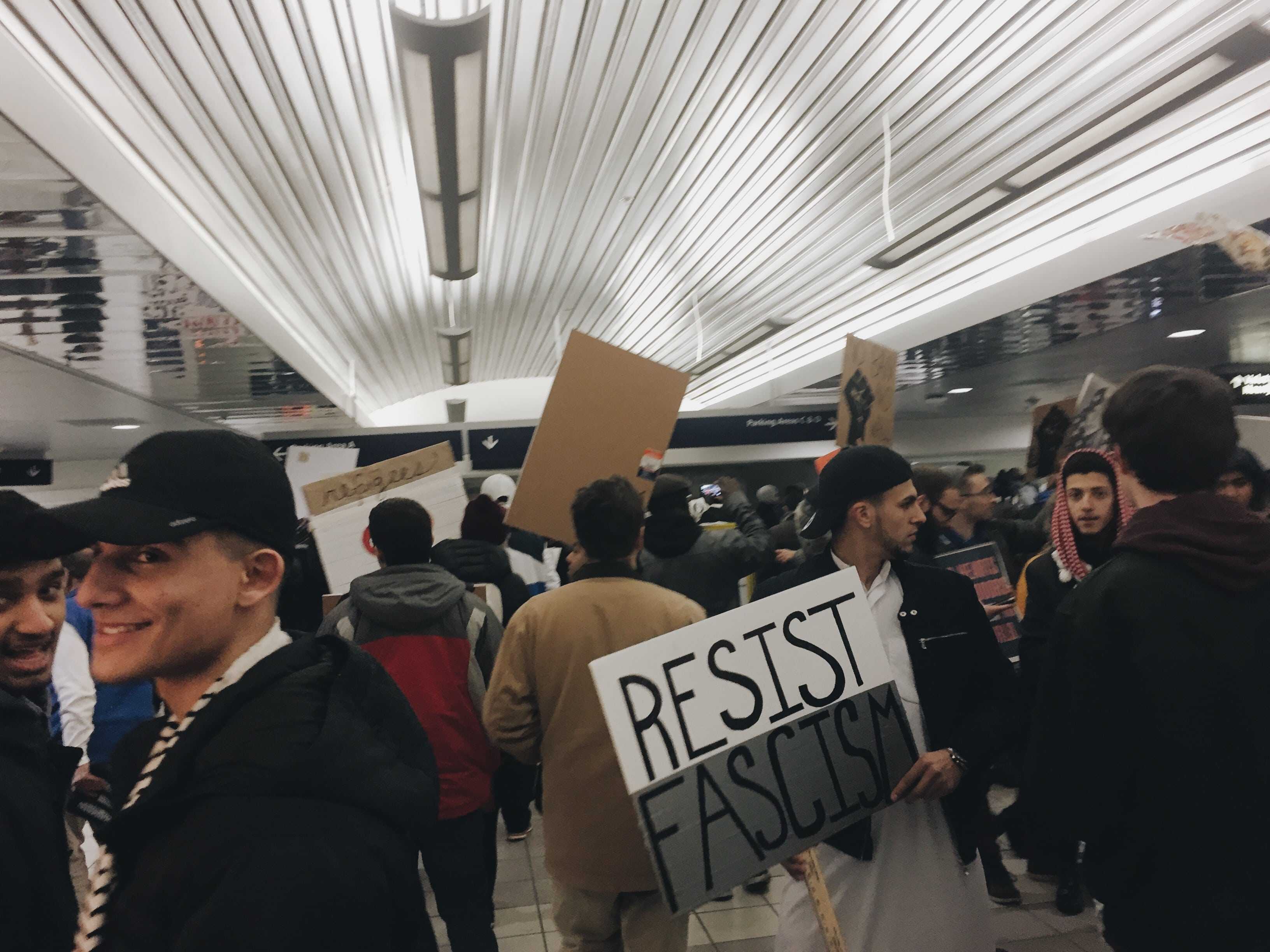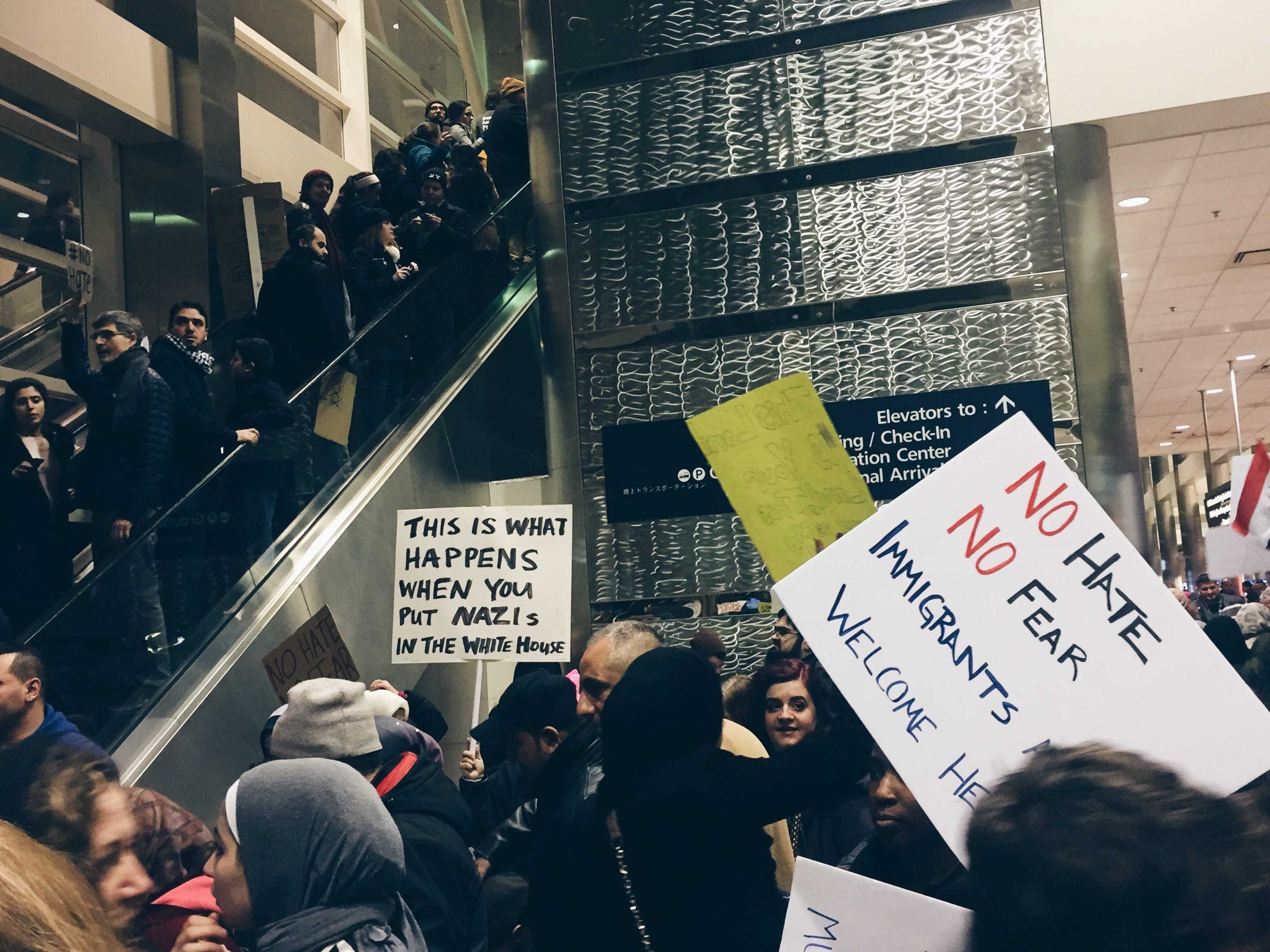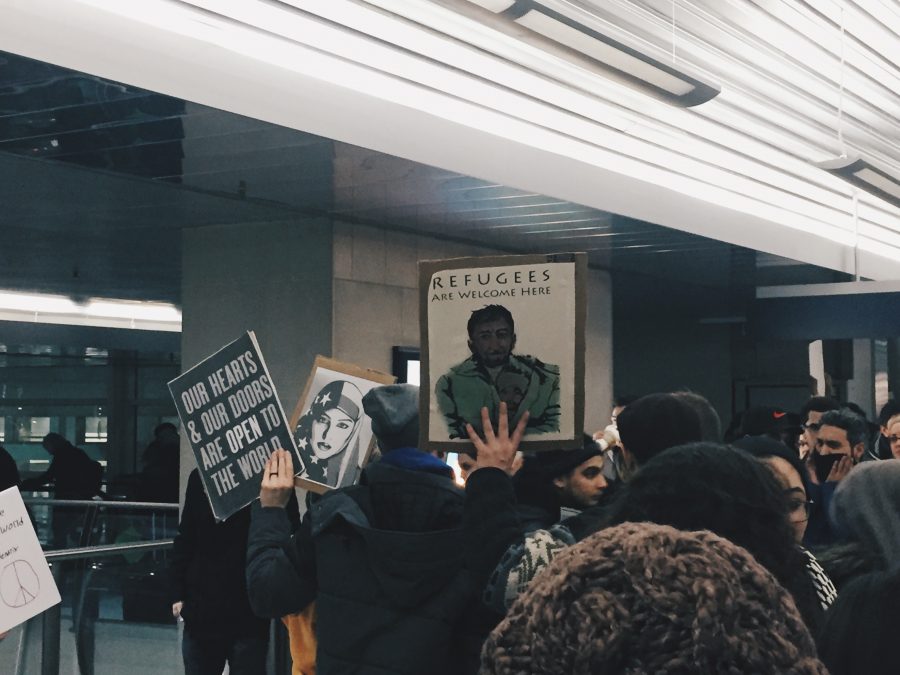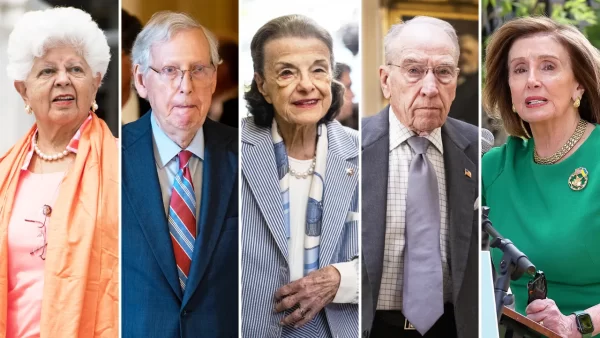Let Freedom Ring
A protest against the “Muslim Ban” that occurred January 29, 2017 at DTW.
On January 27, President Trump issued an executive order barring the admittance of Syrian refugees for 120 days in addition to blocking citizens of certain specific countries from entering the U.S. for 90 days. The order became more commonly known as the Travel Ban or the Muslim Ban, since it prevented citizens of seven Muslim dominated countries from entering the United States. Homeland Security also stated that the executive order bars green card holders from said countries from re-entering America during the allotted time.
These seven countries include Libya, Sudan, Syria, Iraq, Iran, Yemen, and Somalia. It is important to note there has never been a terrorist act committed by immigrants from these seven countries on American soil. Rather, these countries actually offer the United States crucial insight and information.
It is also important to note that the other Muslim majority countries in the region which were not included in the travel ban, Saudi Arabia, Egypt, Lebanon, and the United Arab Emirates, are rich in oil and are an economic asset to America. According to CNN, Donald Trump has multiple companies with business in both Egypt and Saudi Arabia. Trump is working with an UAE billionaire to create two golf courses in Dubai. It should become clear that this executive order has little to do with the safety of the American people, but rather is inspired by bigotry.
“I think the travel ban goes against core American values. This country was founded by those escaping religious persecution and built by immigrants. Banning citizens of muslim majority countries and refugees who are subjected to some of the most dangerous wars in the world goes against our beliefs of religious freedoms and pursuit of happiness,” said senior Maya Chamra, “We need to send a message of acceptance and tolerance instead of hostility and exclusion.”
On January 28, a federal judge ruled to block part of the President’s executive order. Judge Ann M. Donnelly stated, in a one page ruling, that the implementation of the executive order could place those affected in “irreparable harm.” Shortly after this New York City ruling, a Virginia judge issued a temporary restraining order. The purpose of this order was to block the removal of green card holders who were detained.
“Although I don’t believe the executive order is unconstitutional, I do believe it was incredibly vague, poorly implemented, and wouldn’t achieve the goal of making our country safer,” said senior Kevin Rose.
On January 29, cities across America joined in protest of the executive order. Protests occurred in front of city halls, outside of federal offices, and inside of airports. As one among those protestors at the Detroit Metro Airport, I was overwhelmed with the feeling of unity within such a diverse group of people.
Protesters came from all across Michigan to join hands with their Muslim brothers and sisters and proclaim that this executive order should not stand. As an American citizen, it seemed like a personal responsibility to stand with and for those who have been affected by this executive order.
“There is nothing more empowering than standing with those who share the same passion about justice and equality as you. Attending the demonstration at the McNamara Terminal reminded me of the power that comes in numbers,” said sophomore Jane Fisher.
On February 4, Homeland Security announced that it has suspended the implementations of the executive order. It was what seemed like a huge victory; however, it is the Justice Department’s responsibility to file an emergency motion to stop the order. On February 9, a group of three federal judges unanimously ruled to keep the restraining order. The judges stated that the President’s promises of a Muslim ban during his campaign serve as evidence that his executive order would eventually become an exclusive Muslim ban, which the judges view as unconstitutional.
I have stood for the Pledge of Allegiance too many times to stand in silence now. I have seen too many people become citizens to watch green card and visa holders get denied at our gates. It is disappointing to see such an unqualified man in such a high position of power use his power to prevent people from entering this great country. This executive order has very little regard for the safety of Americans, but has the backings of islamophobia and hatred.
On February 24, officials in Trump’s administration rejected a report released by Homeland Security, which states that “country of citizenship is unlikely to be a reliable indicator of potential terrorist activity.” The intelligence report opposes Trump’s main argument for the travel ban and says that for the last six years, those foreign born and were influenced to attack the U.S. came from 26 different countries.
Continuously, President Donald Trump is expected to release a new executive order regarding immigration within the upcoming week. According to Stephen Miller, Senior White House Policy Adviser, the amended executive order will “have the same basic policy outcome.”
“I was absolutely thrilled when the executive order was halted; however, I’m very disappointed with the President’s plan to establish a new one. I think solidarity is important when it comes to dealing with Trump, so I fully support those who are taking action against his executive order,” said freshman Emma Fordree.












